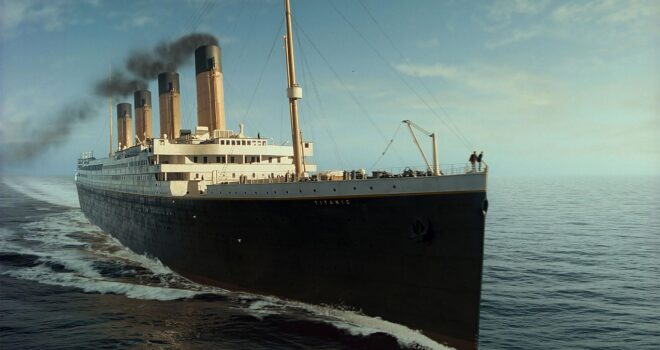On the evening of April 14th, 1912, the RMS Titanic struck an iceberg and began its descent into history. Amidst the chaos that ensued, one man remained calm, quietly going about his duties with the understated resolve of a man who knew his purpose. Father Thomas Byles, an English Catholic priest, faced death as he had faced life: with a sense of duty, a firm grip on his faith, and a profound understanding of the sacred. His actions that night were, in the most English of ways, quietly heroic.
Priestly Duty Amidst the Panic
As the Titanic’s passengers scrambled for lifeboats, the towering figure of Fr. Byles moved among them, his voice steady as he offered words of comfort and spiritual guidance. “Be at peace, my child,” he might have said to a panicked woman clutching her rosary, “the Lord is with you.” No grand gestures, no dramatics—just a man fulfilling his calling with quiet dignity.
Fr. Byles had boarded the Titanic to attend his brother’s wedding in New York, but fate had other plans. As the ship’s fate became clear, he did not seek safety for himself but instead gathered those around him, leading them in prayer and administering the sacrament of confession. This was not mere ceremony; it was a profound act of spiritual care, rooted in the Catholic understanding of confession as a pathway to divine forgiveness.
The Seal of Confession: Sacred and Absolute
Central to the sacrament of confession is the seal of confession—an inviolable vow that no priest may break. The Catechism of the Catholic Church describes it with stark clarity: “The secrecy of the sacrament of reconciliation is sacred, and cannot be violated under any pretext” (CCC 1467). It is a promise that binds the priest in a pact of sacred silence, a silence that Fr. Byles upheld with the unspoken determination of a man who knew the weight of his vows.
On that fateful night, the confessions Fr. Byles heard were spoken into that sacred silence. “Forgive me, Father,” one might have whispered, tears mingling with the icy air, “for I have sinned.” And Fr. Byles, calm as ever, would have replied with the words of absolution, “May God give you pardon and peace, and I absolve you from your sins.” Simple words, yet in the midst of the Titanic’s doom, they carried the full weight of eternity.
Heroic Courage and the Quiet Act of Sacrifice
Father Byles’ decision to stay with the doomed passengers rather than seek a place on a lifeboat was the ultimate act of self-sacrifice—one made not with fanfare, but with the quiet resolve of a man who knew his duty. His courage was not the stuff of legends, but of something far more profound: the quiet courage of a shepherd tending to his flock in their final moments. As Hemingway might have appreciated, it was the tip of the iceberg—what was visible was just a small part of the immense moral fortitude beneath the surface.
“Greater love hath no man than this,” Christ’s words must have echoed in his mind, “that a man lay down his life for his friends” (John 15:13). Fr. Byles did just that, laying down his life for those who had no hope of survival. He did not rage against the dying of the light, but accepted it with the serenity of one who understood that death was not the end.
The Enduring Legacy of Fr. Byles
The story is a testament to the enduring power of faith, the sanctity of the sacraments, and the quiet heroism of those who serve others at the cost of their own lives. In an age where confession is often misunderstood or dismissed, Fr. Byles’ actions serve as a powerful reminder of the sacrament’s significance.
As the Titanic slipped beneath the waves, taking with it over 1,500 souls, Fr. Byles’ final moments were spent in the service of others, upholding the seal of confession with an integrity that was both silent and absolute. His was a heroism not of grand gestures, but of simple, steadfast faith—a heroism that remains, even now, an inspiration to those who seek to live with the same quiet courage and unwavering commitment to their calling.
In the end, Fr. Byles’ legacy lives on in the stories of those who witnessed his final acts of grace and courage, and in the timeless truth that sometimes, the greatest acts of heroism are those that go quietly, but with profound purpose, into the night—just like the sacramental seal.
Photo retrieved from Encyclopedia Titanica
Photo of Fr. Thomas Byles retrieved from Wikimedia Commons










